The Art of Argument: Relationship Skills 101
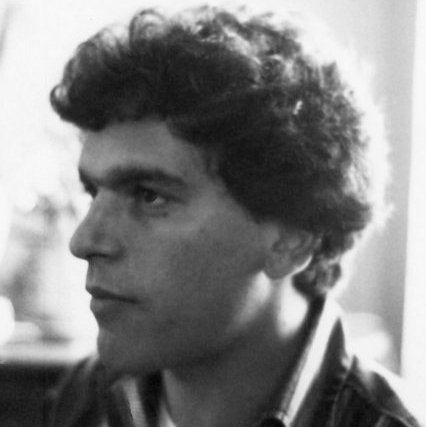
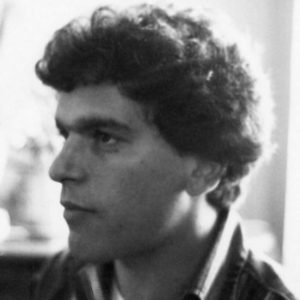
We faced off in the upstairs bedroom, sitting on a mattress on the floor in our rented house on Cayuga Lake. We’d been married less than a year. The afternoon light was low and the bedroom window was open a crack. The small stream next to the house gurgled toward the lake.
“What’s going on?” Vic asked after I gave him a day of the cold shoulder treatment I had learned from my mother.
“Nothing.” Icicles dripped from my voice.
“Come on, E. What’s wrong?”
“Nothing.”
“Look at me, E.” I averted my eyes, but felt him watching me. “OK, I’ll sit here until you talk to me,” he said with an exasperated sigh.
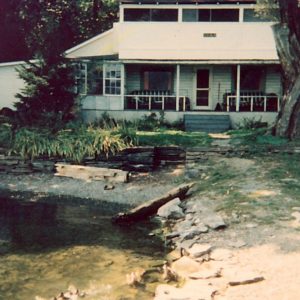
“Then I’ll go downstairs,” I said. I felt like a child.
“I’ll follow you,” he said. It was a plea, not a threat. “Come on, E. Tell me.”
I sat in gloomy silence. I didn’t want to admit how small his sin had been. I wanted him to go away and let me off the hook. He didn’t budge. Neither did I.
I didn’t know how to argue or disagree. My parents rarely fought, and when they did, it was private and cold. Mom had two power strategies: Let Dad have his way if she didn’t care much about the issue or, if she cared, freeze him into submission. He gave her what she wanted rather than endure the frost.
Neither set of grandparents fought either. My father’s mother, Grandma Ware could be petulant and moody, but Grandpa Ware yielded. My mother’s dad never got mad at Grandma Welling because she never disagreed with anything he suggested.
Inexperienced in conflict resolution, I married a fiery Italian who had been trained by his feisty mother in the art of argument. He preferred peaceful negotiation.
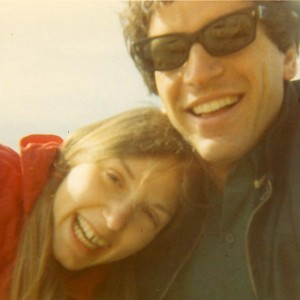 The night before, Vic had accepted an invitation from people he knew from graduate school, people I didn’t much like. I was mad he hadn’t asked me before saying yes, but rather than stating my case, I fumed and fanned the small issue into a flame of resentment. My anger was tinged with fear. I was behaving badly. Would he leave?
The night before, Vic had accepted an invitation from people he knew from graduate school, people I didn’t much like. I was mad he hadn’t asked me before saying yes, but rather than stating my case, I fumed and fanned the small issue into a flame of resentment. My anger was tinged with fear. I was behaving badly. Would he leave?
Realizing he planned to see this through, I accused him of making decisions without consulting me. He surprised me and didn’t get mad. He wanted to understand rather than win and accepted my criticism. My irritation melted as I wept.
It was a baby step toward learning to say harder things when they needed to be said. In time, we exposed vulnerabilities and irrationalities we didn’t trust with anyone else. We learned to trust each other, growl, and forgive.
That day on Cayuga Lake, after Vic heard me out, we walked along the lake shore. Ducks quacked, small waves slapped against the shale stones, and my chest melted in warm relief. We had tested our young marriage vessel and it hadn’t cracked or exploded. I could trust this man.
***
How do you negotiate disagreement in your relationships? For more stories about my early marriage, read My Hippie Wedding and Our First Home.

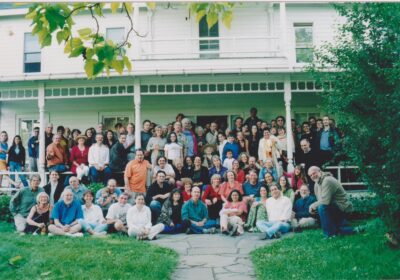

July 22, 2019 at 4:31 am
Dennis A. Dore
This one is special Elaine! Perhaps because it resonates so deeply for me. My Catholic dad and Jewish mom didn’t disguise much. She was brighter than he was and pinned him down. He couldn’t argue with her so he drank instead. Us kids were constantly witness to this palpable and disconcerted arrangement. For my own part I sided with my mom because dad took his anger and frustration out on us in the form of spankings. It felt this way though now in retrospect I feel he was just assigned his generational duty. As a boy I hated him for this. I remember one time when he went for my backside and missed. He whacked my lumbar spine instead. Hours later, when he tried to apologize, I grimly refused him any refuge from his remorse. At sixteen, and as captain of the football team, I felt that he threatened me once too many times and with closed fists I challenged him. My mother stood between us crying, one hand on his chest the other on mine. It took me at least two more decades to figure things out. My mother was one damn, fixed water, Scorpio from whom I never received a single hug. Her “coldness” coddled a hopeless aspiration for affection from her side, while reinforcing the resentment I felt for him on the other. Upon reflection, it was he who sought affection, needed it, and offered it freely. It is so easy now to remember the countless instances of his loving care and kindness. Still vivid was his encouragement of the boyhood things that enliven and excite a child like learning to ride a 2-wheeler. I remember it so briskly, one hand on the seat the other on the handlebar runnning down the street with me and that moment of perfect release when bicycling passed from him to me. I owned it, but he gave it to me. I feel that in the end it is the children in anger afflicted families that are subject to the greatest risks and are faced with the difficult struggle of salvaging wisdom out of a familial dystopia. Mom’s love was in fact tacit, it just happened to be academic. She went back to school and became an elementary school teacher. She took me to Broadway to see Fiorello with Tom Bosley, and Music Man with Eddie Arnold. At 15 she laid in my lap “Native Son” by Richard Wright. In 1991 my Dad lay dying of lung cancer in a veterans hospital on the north shore of Long Island. He had to urinate. I lifted him out of bed and set him in the wheel chair he was assigned to. I wheeled him to the bathroom, took off his diaper and set him on the toilet. When done, I replaced his diaper with a fresh one. I centered him back in the wheelchair and took him back to his bed. Like an infant, I lifted his ransacked frame in my arms and carefully placed him back in bed. It was February 1st and the room felt cold. As I pulled the blankets up around his shoulders, using whatever little strength remained, he lifted himself off the pillows 3 times to kiss me on the forehead and he whispered… “You’re a great man.” A torrent of waiting tears flooded my cheeks, and I told him… “No Dad, you’re the great man.” This is another fine example of your beautiful wisdom at work my friend. This piece I feel reaches a broader audience and touched me very deeply. Thank you!
July 22, 2019 at 3:19 pm
Elaine Mansfield
Thanks for telling your story, Dennis. I’m glad you figured out many things before your dad’s death. Our parental relationships are goldmines of self-understanding and confusion. Sometimes, if we’re lucky, we can find a place of forgiveness and love.
July 19, 2019 at 1:49 pm
patti hirschberg
It usually doesn’t matter what the “argument material” is. The most inconsequential details can trigger deep abandonment issues, or, at the very least, a power struggle, that can infect and destroy a relationship. It seems to me that Gratitude is a driving force behind Elaine’s writing.
July 20, 2019 at 11:04 am
Elaine Mansfield
Thank you, Patti. I was grateful for that guy who was good at communicating even when I was mad at him and could hardly believe my good fortune–which doesn’t mean I didn’t behave badly sometimes. I agree that inconsequential things have the power to make big messes if everyone involved is blown out by other things and in a bad mood or if a childhood complex erupts. Vic was poorly mothered and his father abandoned, so despite his appearances and worldly successes, he needed so much tenderness and love. (Makes me cry to write that.) I needed a ridiculous amount of affirmation. It was good to know this about each other.
July 19, 2019 at 1:31 pm
Pam Slagh
I believe you used the phrase “ we could argue and not draw blood”. I knew what you meant and loved that phrase.
July 20, 2019 at 10:54 am
Elaine Mansfield
I did, Pam. You have a long marriage, so you had to learn that, too. I couldn’t go back to my maternal grandma’s style which was to never disagree about anything.
July 19, 2019 at 12:08 pm
Marian Beaman
This is lovely. I hadn’t read this post, published before I began blogging.
One of us angles for an argument. The other one keeps his/her mouth shut because it’s trivial. Argument in marriage a dance, and there’s an art to it. You nailed it perfectly!
July 20, 2019 at 10:52 am
Elaine Mansfield
Vic had a macho appearance (those Italians!), but I was usually the one who wanted to escalate a small thing into an argument. When that happened, he pleaded for a little space to let things cool off. I often resisted, but it always helped.
July 19, 2019 at 11:14 am
Shirley Showalter
I’m smiling when I read this, Elaine. Because Stuart and I had our first real argument on our honeymoon. It was about whether to give money to panhandlers or not. I was the softee who wanted to help the hungry. Stuart was the hard-headed one who suspected that panhandlers were feeding drug habits and creating an unhealthy culture.
We talked out our difference in perspectives, one that persists to this day. But we each acknowledge that the other could probably be right, at least partially right. And that our relationship is more important than being right.
July 20, 2019 at 10:48 am
Elaine Mansfield
Some days I’m the softee and some days not. Vic was the softee in our world. If I see a pandhandler near a store, I take them in and buy them food or drinks. I like your words, “the other could probably be right.” And maybe that’s the key with any kind of disagreement. Knowing that my ego has massive blind spots and I could be wrong. Also letting go of the fantasy that there will never be disagreement or what we called “the Lightening Rod Effect.” A hard day or excess fatigue resulting in releasing energy on the most reliable person to prevent damage elsewhere. Just having a name helped us avoid that.
January 27, 2013 at 11:46 am
Lynne Taetzsch
I wish I had learned these skills as early as you did, Elaine. It took couples counseling in my fifties before I began to get the knack for it!
January 27, 2013 at 12:25 pm
Elaine Mansfield
Yes, we were lucky to figure this out. Later we soon got involved with 60’s style psychological work in California–psychodrama, encounter groups, free universities. It was a little wild, but helped us learn to navigate the rough edges that come up in any relationship. (One of us had a bad day and the tendency was to zap each other about it first, then feel sad second. Vic called it “the lightening rod effect.”) Thanks for reading and taking your precious time to comment.
Warmly, Elaine
January 23, 2013 at 9:33 pm
Ruth Chlebowski
Elaine, I wish the substance of the tiff you describe were all I had to fight about in my marriage. You don’t know from real argument material. Consider yourself lucky.
January 24, 2013 at 9:40 am
Elaine Mansfield
Dear Ruth,
We were newlywed when this “tiff” happened. Just kids. The argument material became substantial in time, but we usually managed to get along rather than fight. Years of encounter groups and other psychological work taught us more skills for disagreement, although occasionally there was a blowout. Later there were challenging issues–how to live in one place with his job two hours away or how to handle his worldly success and my struggles to maintain my own work. When he got cancer, the major battles were against death and fatigue. Still I told him near the end, “You finally got 100% of my attention, what you always wanted.” There were issues and I write about them in my book. As far as I know, there are issues in every marriage. When I was 22, I feared that any small disagreement would blow us into bits, but our marriage was resilient and tough. I hope yours is, too. And I consider myself extremely lucky.
Thanks for making me smile this morning,
Elaine
January 22, 2013 at 9:10 pm
Anne
I have always thought that exposing vulnerabilities was a good start to an open relationship. Jim and I always said what was on our minds and I think that brought us closer.
January 23, 2013 at 7:22 am
Elaine Mansfield
I agree, Anne. Exposing vulnerabilities and daring to reveal dissatisfaction even when it the exact issue was unclear or seemed petty. There was usually something off that wasn’t conscious, so if we followed the trail of our feelings, we found the source and cleared the air. Marriage or partnership was a path of self-discovery for both of us. Thanks for sharing your thoughts.
Warmly, Elaine